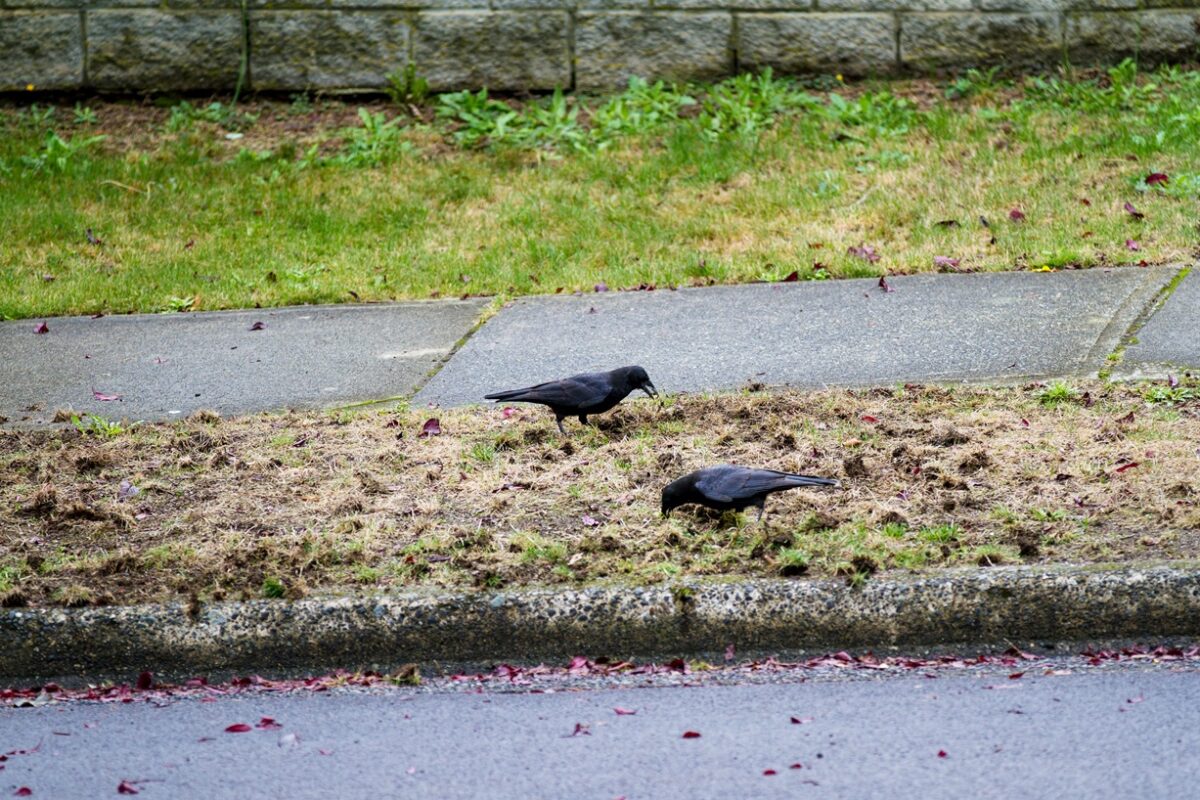Are you planning to plant grass seed? We hope you’ll be successful in growing the grass! At this point, we bet you’re wondering whether the wild birds living in the neighborhood will eat the seeds, right?! You’re in the right place, as we’ve got the answer!
Most birds will eat grass seed, although this depends on their foraging behavior and whether there are other food sources in the vicinity. As such, keeping them away from your grass seed requires a complex approach.
Read on to learn what types of birds eat grass seeds and discover some tips on keeping them away from your lawn, thus ensuring yourself with beautifully grown grass!
Do Birds Eat Grass Seed?
As you probably already know, most bird species are omnivorous. This means they feed on both live prey and seeds or fruits.
Therefore, most omnivorous species will undoubtedly delight in eating grass seed! Birds like starlings, sparrows, and pigeons won’t refuse such a meal under any circumstances! Even the most annoying birds like crows (as in, they can destroy your garden if they land on it) will be attracted to your yard because of the seeds!
Other birds won’t even look at the seeds on your lawn if there are insects or fruits somewhere in the vicinity. Take American robins, for instance. If you install a bird feeder with insects, they’ll never approach the grass seeds.
That’s why it’s important to assess which species live in your area and discover what their diets consist of.

Will Birds Eat Grass Seed With Fertilizer?
Mixing grass seeds with fertilizer won’t solve the issue, as birds will still eat the seeds. They may try to avoid the fertilizer if possible, but the seeds remain a must. If the birds around your house do get to the fertilizer and ingest it, they may be harmed by its toxins. Some toxins are even known to be fatal, especially those mixed with weed killers.
As such, if you want to stop birds from eating the grass seeds in your yard, we do not recommend relying on this solution. There are safer ways to keep them away, and we’re here to help you find them!
Will Birds Eat Coated Grass Seed?
Before answering this question, it’s essential to understand what coated and uncoated grass seeds are.
Coated grass seeds have a coating layer that promotes moisture retention and protects them from diseases, while uncoated grass seeds lack this layer.
Coated grass seeds often contain fertilizers and other chemicals. As such, birds may avoid coated grass seeds because they have a weird taste. If they do eat them, these seeds may cause digestive issues.
Ways to Stop Birds From Eating Grass Seed
If you want to stop birds from eating the grass seeds in your yard but still want them to visit your bird feeder, you’ll find this task pretty challenging and time-consuming.
You’ll most likely have to move the bird feeder far from your yard and apply additional protective measures that will prevent the birds from approaching your house.
Or you may try the opposite solution – if you leave the bird feeder where it is and make it much more appealing to birds than the uninteresting grass seeds, they will probably not even have second thoughts about letting the grass seeds where they are. This will imply understanding the birds’ dietary preferences.
If you do not have any bird feeders and aren’t interested in keeping birds around, you can install some fake birds of prey in your yard, as smaller birds are known to avoid them.
Moreover, you can rely on various sounds birds get scared by. This is not the best option, though, because it will cause them much distress, and they probably won’t return to your yard even after there are no seeds for them to eat. A better option might be installing noise repellents for birds. They will keep them away from your yard but won’t scare them as much.
Additionally, you can use fine mesh netting to protect your grass seed. You’ll have to keep it off the ground to prevent birds from getting to the seeds by using their bills. Another great idea is to cover your lawn in polythene sheeting.
Last but not least, the best option is probably to choose the grass seeds wisely. It’s well-known among gardeners that birds aren’t as attracted to ryegrass and fescue grass.
Another useful tip gardeners provide is planting grass seed during the night or in the late evening. This will help if the birds in your area are primarily diurnal. Therefore, you’ll have to do some research on their behavior before planting the seeds. Still, this measure must be equipped with another one, as birds might still spot the seeds during the day.
